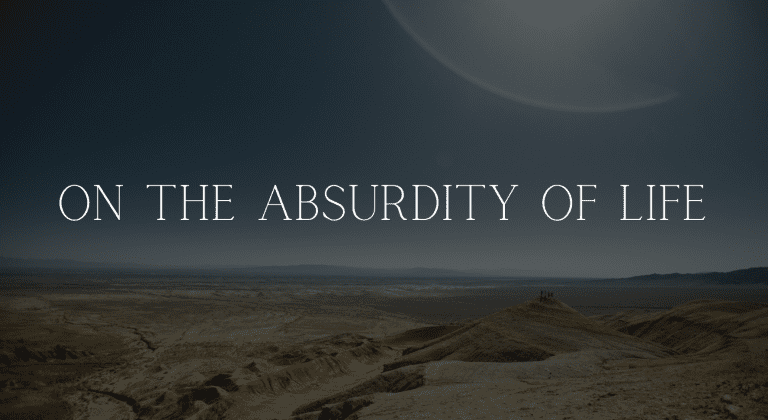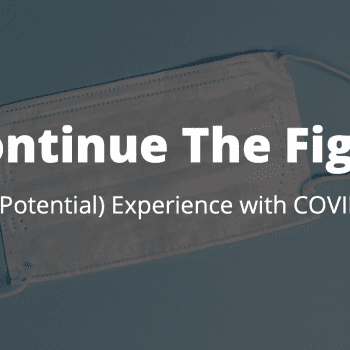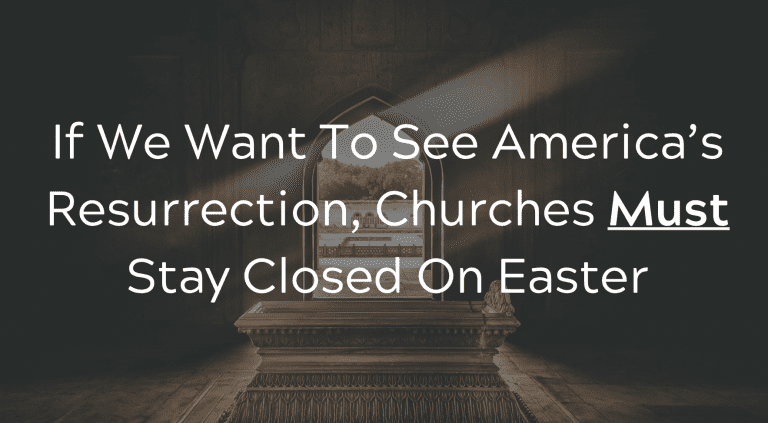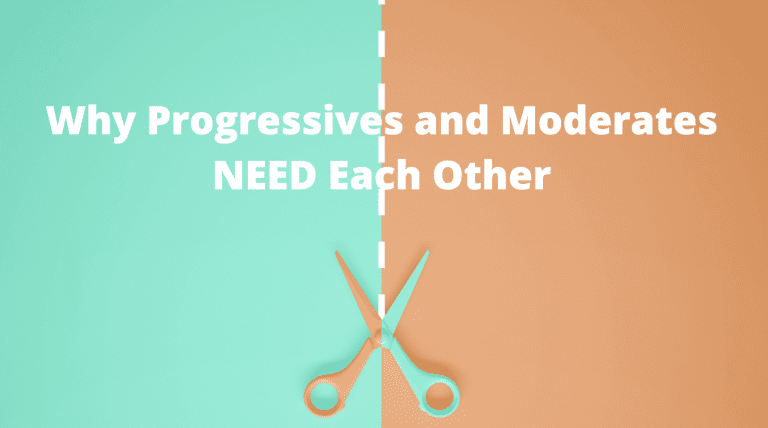When you think of who you are, how do you describe yourself?
Take a second and think about that question. Who are you?
As we begin to answer this question, it’s likely we will start by naming attributes that could fall into two different categories- physical and mental or spiritual.
I am a man. That’s physical.
I am American. Also, a statement of a physical reality.
I am a Christian. That’s spiritual or immaterial.
I am a pastor. A statement of a physical reality.
See, hardwired into our thinking about ourselves and reality is this idea that we are made of two different parts- the physical, relating to our body and the way that we relate to the tangible world around us, and what I will call the spiritual or immaterial, which relates to our inner-lives and how we see experience the world.
On one sense, this is a helpful dichotomy- it helps us to focus attention on living physically robust lives and also maintaining a healthy inner spiritual, emotional, and psychological life.
But on another hand, I want to suggest that this split between the physical and the non-physical is actually really harmful to us.
Since the earliest days of Christianity, there has been a struggle between two factions of people- one group who were called the Gnostics, who believed in a separation between the physical and the spiritual, and believed that the spiritual self was the true self and the only one that really mattered.
Therefore, they sought to detach themselves from the physical world and the body, and focus specifically on preparing their souls to leave the body and attain freedom in the afterlife. This way of thinking about reality was the foundation of the Greco-Roman world of the first century when Jesus emerged and was the primary way that people were thinking about the world.
However, Jesus himself and his earliest followers, relying on a deeply Jewish way of seeing the world, rejected dualism. Instead, they preached a message that declared that this life, this world, and this body mattered. In fact, Jesus declared that the goal of our existence was not to escape this world and this body in search for some heaven off in the ether, but rather, to work to create a more beautiful reality right here in this physical world.
The unique message of Christianity, when compared to all of the other religious and philosophical realities of the first century, was that God was active and alive within the psychical world, and that in the person of Jesus, we see revealed the truth that God is in the flesh, in the world, not seeking to help us escape it, but rather to bring it to wholeness. To shalom.
The Hebrew world shalom, by the way, has often been mistranslated as “peace”. But in the Hebrew consciousness, shalom actually means wholeness. It means equilibrium and balance in every aspect of existence- mind, body, and spirit.
So, when the Hebrew Bible declares to “pray for shalom”, it’s actually a plea for prayer, not merely that people would stop fighting. But rather, that people would find balance and wholeness in every aspect of their lives.
When Jesus declares, time and time again, to his disciples “Peace I give to you”, what he’s actually declaring is “WHOLENESS” is given to you- integration, balance, and equilibrium.
So, the early Christians appeared on the scene with a radical message- the gnostic, dualistic way of seeing the world was wrong and harmful. God did not desire for us to seek to escape this world or this body, but rather, to work to bring healing and wholeness to the physical world.
This is why the earliest Christians emphasized a belief in resurrection- they believed that “eternity” would be experienced in the physical body in the physical world. This stood in stark contrast to the primary mindset of the day.
The early disciples fought hard against gnostic ideas which kept creeping into the minds of Christians because it was so prevalent in their culture. The author of the Letter of 1 Timothy writes:
“Now the Spirit expressly says that in later times some will depart from the faith by devoting themselves to deceitful spirits and teachings of demons, through the insincerity of liars whose consciences are seared, who forbid marriage and require abstinence from foods that God created to be received with thanksgiving by those who believe and know the truth. For everything created by God is good, and nothing is to be rejected if it is received with thanksgiving…”
Here we see a strong condemnation of dualistic Gnosticism, calling it a “teaching of demons”- the Gnostics required folks to abstain from all sorts of physical pleasures- food, sex, marriage- because it was bodily and useless. But the Christian message was the at EVERYTHING that is Created by God is good. NOTHING physical was to be rejected.
The message of Jesus was that this world, this body, it was good. It should be enjoyed. It should be kept in health. Isn’t it funny, then, how most of us who grew up in modern Christian circles heard exactly the opposite of this message?
Most of the Western Church has fallen prey to the heresy of Gnosticism, the belief that the body, the world, pleasure- it’s bad. And that we should focus on leaving this world, escaping to heaven.
We are taught that sex and sexual pleasure is bad. We are taught that it’s more important to study the Bible than it is to work out. That it’s better to pray than it is to take medicine or eat healthy.
Yet Jesus and the early Church declare, time and time again, that the physical world is good. That the body is good. And that our home is here in this world, not off in heaven.
Jesus prayed that the Kingdom of God would be manifest on earth as it is in heaven.
The Book of Revelation declares that all people, in their physical bodies, will live on a renewed earth with God for eternity.
That was the great hope of the early Christians.
And yet, the modern Christian Church has fallen into the trap of Gnosticism, and its impact on the lives of not only Christians, but the Western world that has been so influenced by Christianity, cannot be overstated.
Not to throw shade, but can we be real for a second. Have you ever noticed that within most Christian churches, people experience a lack of physical health and wellbeing?
Within the walls of the church, nutrition is at its worst. Mental health is at its worst. Our bodies are out of shape and our health is in decline.
And we feel justified becauseat least we prayed today. Or because we think this body is only temporary.
Friends, this is not the way of Jesus.
According to Jesus, our physical health and wellbeing is just as important as spiritual health. In fact, I believe Jesus wouldn’t separate the two. If your mental health or physical health are failing, it’s really hard for you to be spiritually healthy. And if your spiritually unrooted, your physical and mental health will experience distress as well.
We are not separated beings, but whole people. Mind, body, and spirit may be three arenas within our whole lives, but they are not separate. What we do in one area directly impacts the other aspects of our existence.
Could this lack of embracing a holistic worldview be a reason why so many people are walking away from organized religion and Christianity?
Because we have been teaching such a deficient and harmful understanding of spirituality that sees the physical as opposed to the spiritual?
I think so. Have you noticed that some of the most prominent modern forms of wellness among folks are practices that combine the spiritual and psychical together?
This is why yoga studios are on every corner- yoga calls us into an integrated life, focusing on our spiritual and physical wellbeing. Many spin classes like Flywheel and Soulcycle focus on incorporating spiritual teaching and physical exercise together as a whole package for creating a more flourishing life.
While the church has been calling people away from physical wellbeing towards so-called “spiritual” wholeness, the culture by and large has come to realize that the way that Jesus taught and embodied is actually true- that abundant life is only available when we treat our physical and spiritual health as one, interconnected reality.
Paul, in that letter to Timothy I referenced earlier continues on by saying:
If you put these things before the brothers, you will be a good servant of Christ Jesus, being trained in the words of the faith and of the good doctrine that you have followed. Have nothing to do with irreverent, silly myths. Rather train yourself for godliness; for while bodily training is of some value, godliness is of value in every way, as it holds promise for the present life and also for the life to come.
Note here that Paul says bodily training is of value. He’s referring to physical exercise– and he says, pairing that with “godliness” which is a way of saying “spiritual exercise” we will become “good servants of Jesus Christ.”
Now, clearly Paul emphasis the spiritual in this text, but that’s beside the point. Paul instructs Timothy to reject Gnosticism, to establish a rhythm of physical health and spiritual health, and insodoing, he will experience the abundant life that God desires for him.
Some of the most profound teaching in the New Testament about a holistic worldview comes from the writings of the Apostle Paul. In Paul’s letter to the Church at Corinth, he writes:
“I have the right to do anything,” you say—but not everything is beneficial. “I have the right to do anything”—but I will not be mastered by anything. You say, “Food for the stomach and the stomach for food, and God will destroy them both.” The body, however, is not meant for sexual immorality but for the Lord, and the Lord for the body.
By his power God raised the Lord from the dead, and he will raise us also. Do you not know that your bodies are members of Christ himself? Shall I then take the members of Christ and unite them with a prostitute? Never! Do you not know that he who unites himself with a prostitute is one with her in body? For it is said, “The two will become one flesh.” But whoever is united with the Lord is one with him in spirit.
Flee from sexual immorality. All other sins a person commits are outside the body, but whoever sins sexually, sins against their own body. Do you not know that your bodies are temples of the Holy Spirit, who is in you, whom you have received from God? You are not your own; you were bought at a price. Therefore, honor God with your bodies.
Now, the context of this passage is in relation to sexual immorality. Specifically, Paul is addressing members of the early church who were frequenting prostitutes- but when we zoom out a bit we can see some tremendously helpful principles that Paul is teaching to the early Christians. I want to look at four:
- All things are permissible, but not everything is beneficial.
In this first statement, we see some wisdom that I am sure many of us would have wished our churches would have told us earlier in life- everything is permissible, but not everything is beneficial. The early church was not interested in burdening people with rules and regulations about what they should and should not do.
Jesus himself comes on the scene and shows great irreverence to all of the cultural and theological rules and regulations of his Jewish faith- if a rule didn’t make sense, Jesus happily transgressed it.
Paul teaches here that for the Christian, everything is permissible. What this means is that, when we live a life centered on the values of Jesus- love, sacrifice, patience, service, respect- then we are free to manifest them in whatever way we desire.
Some of us may be convicted that we shouldn’t eat meat- great! Do that. But we shouldn’t seek to make everyone else abide by our standards.
Some of us may think that drinking is an unhelpful activity- great!Abstain from drinking! But you shouldn’t seek to make everyone else abide by that standard.
But the addendum Paul makes is this: yes, everything is permissible. But the real question is, is it beneficial? This is the question Paul puts in the front of our minds as we analyze the way we live our lives.
Sure, you might be allowed to eat that whole chocolate cake- it’s not a sin. But is that beneficial to you?
Sure, you might be allowed to spend the week on your couch binge watching season two of Queer Eye on Netflix, but is that beneficial to you?
Paul is revealing that God is not so concerned with the individual choices we make in regard to how we spend our time, but rather, is concerned with whether what we do is beneficial. If it’s healthy. If it draws us deeper into wholeness, shalom, and abundance.
So, as we think about living a physically healthy and whole life, may we put this question at the forefront of our mind- is what I am doing, is how I am using my time and energy, is what I am eating beneficial to my health?
If we asked ourselves that question more often, I suspect most of us would make very different choices with how we live our lives.
- The body is meant for God and God is meant for the body.
The next three statements that Paul makes all hammer home this notion that our physical bodies are as important to our spiritual life as our “souls”. He declares that our body is meant to be lived in relationship to God, and God lives interconnected to our bodies. He declares that our bodies are literal manifestations of Christ on earth, and that our bodies are the templewhere the Spirit of God resides.
The second principle we should seek to embrace as we think about physical wholeness comes from these three statements- we must understand our bodies are as important as our spirit, and that in fact, what we do in our physical world is as important as what we do spiritually.
I’ve preached many times here that when the Apostle Paul calls the church the “body of Christ”, he isn’t speaking metaphorically. He’s making a literal statement about a literal reality. We are the physical incarnations and manifestations of Christ in the world.
We, in our physical bodies, are the power, person, and presence of Jesus.
Listen to how that 14thCentury Mystic, St. Theresa of Avila expressed this reality:
Christ has no body but yours,
No hands, no feet on earth but yours,
Yours are the eyes with which he looks
Compassion on this world,
Yours are the feet with which he walks to do good,
Yours are the hands, with which he blesses all the world.
Yours are the hands, yours are the feet,
Yours are the eyes, you are his body.
Christ has no body now but yours,
No hands, no feet on earth but yours,
Yours are the eyes with which he looks
compassion on this world.
If we are to accomplish Jesus’ goal of making the world a more just, generous, and beautiful place, we must realize that God has chosen to manifest Godself through us in our physical bodies.
We must remember that God does not dwell in churches or temples or sacred shrines, but in the bodies of human beings- not in temples of stone, but in hearts of flesh.
We must remember that if our physical bodies are not healthy and whole, we cannot be faithful disciples of Jesus in the world. We cannot do justice, love our neighbor, and work to heal the world if we ourselves are out of shape, are sick, and are in distress.
It is as important that our bodies are healthy as it is that we are spiritually nourished and rooted. And we cannot be effective followers of Jesus or human beings if both realms are not moving towards greater wholeness and health.
Are you with me?
So then, now that we’ve seen these two principles in scripture related to our physical health, what does it look like practically for us today? How can we leave this place and begin to move towards wholeness in our physical bodies like God desires for us?
I want to give us three simple pointers that are not groundbreaking- they’re things we all know already. But this is true of anything important- we know what we need to do, but often we must be reminded and provoked to do them.
So, when we’re talking about physical wellbeing, the first pointer is:
- In order to become who, we want to be-first we must embrace who we are in this moment.
In the words of the great prophet Ru Paul, “How in the hell are you supposed to love anyone else if you can’t even love yourself.” The first step to physical health is to brush off any pressure to look a certain way, or to compare ourselves to anyone else. The goal is wholeness, and that looks different for every single person.
It’s good to have goals. It feels great to begin molding your body and life into something that feels healthier. But if we try to live under the weight of dissatisfaction and comparison, we will run out of steam really quickly. I really want to look like Channing Tatum, but that’s probably not going to happen anytime soon, and it’s also not a great goal- to look a certain way just for the heck of it.
Instead, the goal should first and foremost be health- from there, we can move towards the cosmetic desires we have. But this is a reason that so many people start exercising and stop so abruptly- we want quick results because we’re comparing ourselves to others, and when those don’t happen, we waive our white flag and surrender to hopelessness.
I learned this the hard way. I began going to a personal trainer about two months ago, and his first question to me was “Why are you here?”. My literal, honest answer was- I want six-pack abs by summer time. And do you know how he responded- he laughed.
He laughed not because that was a bad goal or because I wouldn’t get abs someday. He laughed because such a shallow goal is the easiest way to burn out and give up. Instead of focusing on quickly fixing the way I look, I was encouraged to instead find contentment with who I was right now, and begin working a more holistic sense of health and strength.
That’s what guarantees long term success.
So, the first step is being content with who you are and how you look- you’re not getting healthier so that you can fit into someone’s version of what is sexy, but rather, so that your whole life experience will be more enjoyable. Amen?
- Ask “is this beneficial” of what we put into our bodies.
Instead of trying to adhere to fifteen different diet and exercise plans, what if we just got in the habit of asking the question that Paul poses to us- “Is this beneficial?”
As humans, we’re conditioned to hate being told what to do. When rules and boundaries are set, our propensity is often to break them. But what if we view physical health not as a constraint, but as a process of discernment.
What if we lived our lives in the present moment, and continually asked “Is this beneficial?” when we make choices every moment of every day?
When we do this, our routines actually get a lot more free and diverse- sometimes it may be beneficial to eat a big bowl of ice cream or drink a beer at the end of a stressful day. Some days, it’s probably not.
Some days it may be beneficial to skip a workout and catch up on sleep- some days, it won’t be.
Instead of treating our bodies and health like we’re in military boot camp, what if we took a posture of grace and honesty with ourselves?
Because I don’t know about you, whenever I swing to extremes- “I will only eat this” or “I will exercise for an hour every single day”- it usually lasts only about a week if I am lucky. But when I am constantly thinking through what is best for me, my choices are different- the answer is different depending on the day or the circumstances, and I am given the freedom to pursue the healthiest path for me for this moment.
That feels a lot less overwhelming and a lot more doable, doesn’t it?
- Find accountability in regard to exercise and physical activity.
The last step is one that I think is really important, especially for those of us getting in to a rhythm of physical health for the first time in a long time- find accountability about our physical health and wholeness.
Let’s be real- most of us need someone else to keep us in check if we’re going to pursue health. We need someone to help us feel encouraged and motivated to keep choosing what is most beneficial and what is most healthy, because we’ve been so conditioned to do just the opposite.
This could look like a friend, roommate, or partner who agrees to check in with you each week about how you’re doing with your food and fitness goals. It could also look like committing to an exercise class or group where you join with others as you all pursue health together.
For me, I am much more motivated to be healthy and to exercise when I am in a group setting. So, yoga classes, fitness groups, and cycle-studios are really beneficial to me. Being in a room with a bunch of others, working together towards a common goal helps me keep showing up, working hard, and moving ahead.
If that’s not your thing, then having a friend keep you in check might be a great option. There are also apps and community groups that help remind you of a need to exercise and keep you accountable. There is a plethora of options available to us today to keep motivated and accountable, and I think if we’re going to move towards wholeness with consistency, accountability is absolutely essential.
I believe that all of us will continue to move towards physical wholeness and wellbeing. And as we get healthier in our body, our mental health and spiritual health will also progress towards greater wholeness as well.













